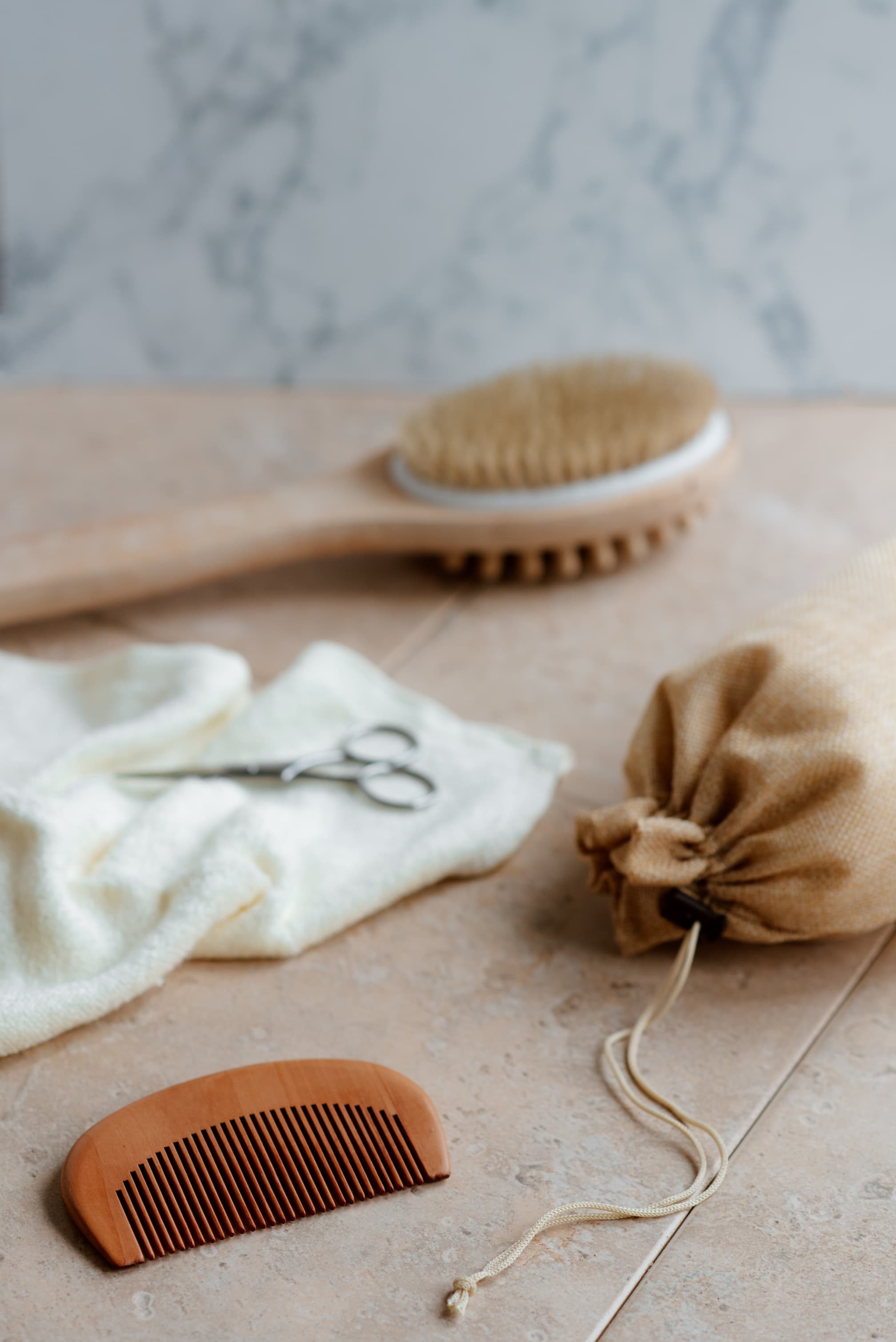
Blog
3 Essential Proteins for Hair, Skin & Nails
Find out the 3 essential proteins you need for a healthy hair, skin & nails.
By
Gene Bruno
Jul 30, 2021


What is keratin?
Let’s start with the definition of keratin. Keratin is a fibrous structural protein making up hair and nails, and also protecting epithelial cells on the surface of your body, such as your skin, blood vessels, urinary tract, or organs.1 So what does it do? To be clear, keratin is the key structural material that makes up about 95% of the composition of hair. In case you’re wondering, “what is keratin made of,” the answer is various amino acids – with cystine accounting for 24% of the sum of amino acids.
Keratin benefits
Given its structural role, you might assume that supplementing with keratin for hair would be beneficial – and you would be correct. In fact, there are two clinical studies demonstrating the effectiveness of solubilized keratin (Cynatine ® HNS) for this purpose. In one 90-day study2, 500mg/day of solubilized keratin significantly reduced hair loss during washing, significantly improved hair strength, and also improved hair brightness. In another study3, 500mg/day of solubilized keratin likewise showed a reduction in hair loss, an improvement in hair growth and strength, and an increase in hair brightness. In addition, solubilized keratin significantly reduced the tendency of nails to break and improved nail appearance.
Keratin side effects
“Is keratin safe? Does keratin have side effects?” Given that keratin is a protein used throughout the human body and that the effective dose is so low (500mg/day compared to many grams typically used with other proteins), supplementation with solubilized keratin (Cynatine® HNS) is virtually without side effects and as safe as it gets where protein is concerned.
What is collagen?
Like keratin, collagen is a structural protein. Specifically, it is the main structural protein found in the skin and other connective tissues. What does collagen do? It is vital to our health and well-being, making up 25% to 35% of the total sum of protein content throughout your entire body. Collagen has great strength, and along with keratin and elastin, it is responsible for skin strength and elasticity. The degradation of collagen leads to wrinkles that accompany aging. As with keratin, you may be wondering, “what is collagen made of,” and like keratin, collagen is made of amino acids – with a particularly high concentration of hydroxyproline, which does not occur in substantial quantities in other proteins.4
Collagen benefits
Collagen supplement benefits are well documented – especially collagen benefits for the skin. In fact, there is a special type of collagen peptide called Verisol®, which was shown to be particularly well-absorbed and detectable in several organs and tissues, including the skin.5 Research6 on 2.5g/day of this collagen peptide showed that it promoted a statistically significant 20% reduction of eye wrinkle volume in 8 weeks, and also resulted in a significantly higher content of procollagen (the precursor to collagen) and elastin. In a second study7, 2.5g/day of this same collagen peptide resulted in significant improvements in skin elasticity, and also improved skin moisture in some subjects. Another study8 with 2.5g/day of Verisol® collagen peptides showed a significant decrease in the degree of cellulite on the thighs of women tested.
Collagen side effects
As with keratin, collagen is a protein used throughout the human body and that the effective dose is also low (2.5g/day) compared to many grams typically used with other proteins. Consequently, collagen peptides are safe and virtually without side effects.
What is elastin?
Elastin is a protein forming the main constituent of elastic connective tissue, found primarily in the dermis of the skin. As the name suggests, elastin protein is flexible. The function of elastin is to give tissues their elasticity. For example, if you pinch the skin on your arm, your skin snaps back into place because it contains elastin.
Elastin benefits
While collagen gives skin its strength and framework, it is elastin that is responsible for the elasticity and firmness of the skin. The enemy of elastin is elastase, an enzyme known to degrade elastin.9 Sun, stress, even the foods we eat stimulate elastase activity. The result of increased elastase activity is the potential degradation of skin elasticity and downstream impact on skin tone and overall appearance. Healthy levels of elastin may help preserve the elasticity and firmness of youthful skin.
So, there are elastin supplements, like there are keratin and collagen supplements? Not really. However, there are supplements you can take that will help increase elastin levels in the body, thereby providing some of the benefits of elastin. One such example is the previously discussed collagen peptide, which also significantly increases elastin production.10 Likewise, Dermaval™, a proprietary blend of various plant materials, has been shown to inhibit elastase11 – and this occurred within only two hours of taking the supplement. The net result is that more elastin is maintained in the body instead of being destroyed. When incorporated into healthy skin and aging maintenance programs, Dermaval™ can help preserve the elasticity and vitality of the skin.
Elastin (Dermaval™) side effects
In clinical research, there were no reported safety issues or adverse side effects associated with Dermaval™ supplementation.
Conclusions
Keratin, collagen, and elastin are three proteins that play a major role in the maintenance of healthy, beautiful hair, skin and nails. Solubilized keratin (Cynatine® HNS), Verisol® collagen peptides, and Dermaval™ can all help to support the production and/or maintenance of these three proteins—which have clinically demonstrated benefits for beautiful hair, skin and nails. A convenient and effective way to receive clinically relevant amounts of each of these nutraceuticals is by supplementing with Reserveage Très Beauty 3™, a dietary supplement that provides Cynatine® HNS, Verisol® and Dermaval™ (along with biotin and hyaluronic acid) in three capsules daily.
Learn more

